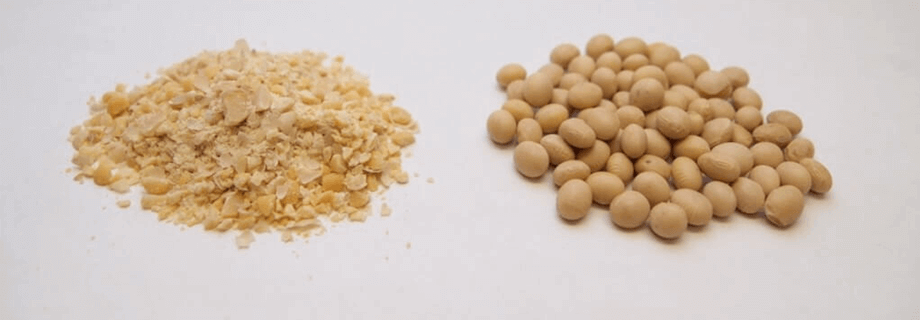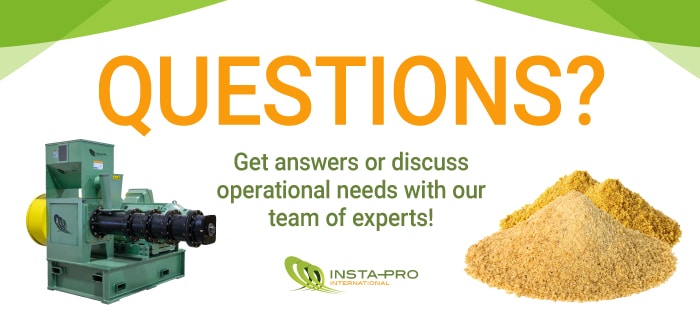Feeders for Extruders

Just as the extruder is capable of making a wide variety of different products, there are different ways to feed the extruder. I’ll use this discussion to explain over the top feeders, side feeders, mass flow feeders and the types of products they are used for.
Over the Top Feeders– This feeder gravity feeds into the top of the extruder inlet chamber and is used for coarse ground, dense products, like soybeans, corn /soy, and other grain combinations. On older model extruders, the feeders were mounted on a swing arm assembly that was attached to the frame 0f the shaft and bearing housing. The modern version bolts on to same framework, directly above the inlet chamber. This type of feed system represents our most basic configuration and accounts for a high percentage of the equipment that goes out the door.
Force Feed or Side Feeders- Some products that we extrude present a challenge in keeping products feeding to the extruder and require direct feeding into the inlet chamber. This is normally due to characteristics such as low bulk density or high moisture ingredients. Bulky ingredients are hard to feed fast enough to keep the extruder full and cause a constant problem with bridging or hollowing out the area around the feed auger. In the industry this is also known as {rat- holing}, which causes an interruption in the flow of product to the extruder. Products that are noted for this are cottonseed, rice bran and wet waste products.
To keep these types of products feeding fast enough to keep the extruder full and operating in a consistent, smooth and efficient manner, a special inlet chamber with a built in adapter to allow the feeder to be direct coupled is used. In some cases a larger feed auger, with more horsepower, a different ratio gearbox and an agitator can be used to keep the product moving to avoid the problem of bridging. These types of feeders are either mounted on a swing, arm or on framework with wheels so it can be moved for easy wash down.
Mass Flow Feeders- The mass flow type of feed system is used in combination with the preconditioner for products that require fine grinding or pulverizing. These products include shaped products like fish feeds, pet feeds and texturized soy proteins. Most fish feed is made thru very small die plates, requiring the pre-extruded ingredients to be finely ground so they take on the characteristics of flour. These flour type ingredients can be difficult to feed and present some of the same bridging problems you see with the bulky products.
Consistent feeding is critical as it relates to making shaped products. To produce the same shape hour after hour requires consistency in everything including moisture, temperature, particle size and feed rate. The mass flow hopper can hold up to 500 Kg of pre-extruded product. It has steep side walls, and depending on the model, one or two augers in the bottom to positively feed the product to the conditioner vessel.
The difference in feeders is something to consider before purchasing a new extruder, or expanding your existing product line. Remember, the Insta-Pro nutrition, sales and service team is available to discuss your goals and help you make the decision that’s right for your operation.



